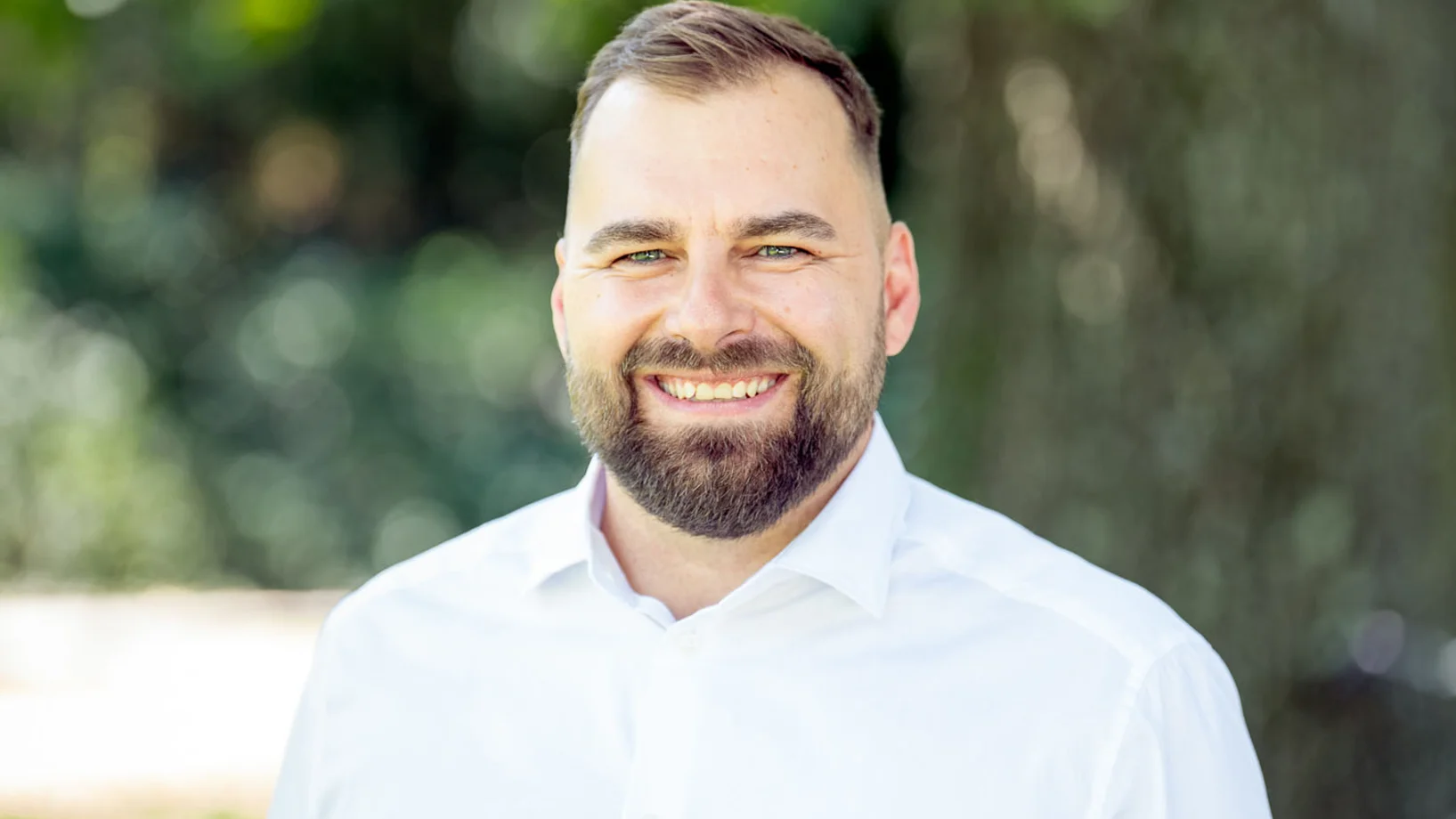One million trees against poverty
Zurich/Fogera, September 20, 2022 - In Ethiopia, poor small farmers are cutting down the last forests out of necessity - thereby increasing their misery. In the rural district of Fogera, the Foundation Menschen für Menschen has reached a turning point: the poor families have planted new trees there, a total of 1,000,000 trees.
Farmer Muchit Worke, 48, does not wear shoes on her feet. This is surprising, because some of the fields around her family farm are reminiscent of scree fields in the Alps. Walking barefoot must be torture: fields and the paths above are littered with stones the size of your fist. However, there is little of the topsoil left: in the rainy seasons, the floods have washed away the fertile soil. During the dry seasons the wind blew away the fine soil. “It’s as if we live in a desert,” says Muchit Worke.
Fogera, a poor district in northern Ethiopia: Almost all residents are small farmers and day laborers. Many families have less than one hectare of land - the equivalent of one and a half football fields. They live solely on what grows on them: teff, the ancient Ethiopian grain, millet, corn. But farming on the depleted soils yields little. Many families don't have enough to eat for many months of the year. They ration their meals, suffer shortages and hardship.
Massive forest loss
This also has to do with the loss of forests. “When I got married thirty years ago and came to my husband’s farm, two thirds of the land was covered with trees,” remembers Muchit Worke. “We simply drove the cattle into the forest to graze.” But then the young people needed fields to feed their children and so they cleared the trees.
Around a hundred years ago, 40 percent of Ethiopia's landscape was forested. Today it is only four percent. Deforestation is a problem across Africa. 3.9 million hectares of forest are lost on the continent every year - an area almost the size of Switzerland.
Where the forest disappears, the microclimate and the water balance deteriorate, the groundwater table drops and streams dry up. In the rainy season there are no longer any tree roots that could slow down rainfall - so the soil is washed away. Global climate change, for which rich countries are responsible, is amplifying the negative development: the short-term rains come heavier and later - or they don't come. This makes sowing more difficult and reduces harvests. That's why the families in Fogera don't have enough to eat for many months.
Amazing growth
“We want to make small farmers more resilient to global warming and restore the sustainability of the landscape,” says Kelsang Kone, managing director of Menschen für Menschen. “Our employees increase families’ resilience with training and agricultural inputs such as improved seeds.” The development experts teach the small farmers how to achieve the best possible yields from their fields. For example, through agroforestry and mixed crops: vegetables grow under fruit trees, while beans and grain are grown in the fields.
Within three years, the Swiss foundation grew one million trees in a specially set up nursery. In mid-2022, the development experts and locals planted the last third - on slopes and erosion ditches, at schools and on the land of individual families. The farmers plant the trees as erosion protection along field edges and slopes or as shade trees and windbreaks around their farms.
Muchit Worke's family was able to plant around 1,000 trees in 2021, compared to around 2,000 last year. Cypresses, acacias, but especially Australian silver oaks. Under the tropical conditions in Fogera and with regular watering, they grow surprisingly quickly: the largest specimens are already around four meters high.
Climate protection as an additional effect
In the long term, the large number of plantings improves the microclimate, stabilizes the water balance and slows down erosion, ultimately improving harvests. “It’s all about fighting poverty and ensuring food security,” says Kelsang Kone. “But the fact that our million trees in Fogera also bind the greenhouse gas CO2 is a welcome additional benefit.”
The 3,000 trees on Muchit Worke's land alone remove around 166 tons of the climate poison CO2 from the atmosphere over ten years. For comparison: a transatlantic flight produces around 2.5 tons of CO2 per passenger. The straight trunks of Australian silver oaks are ideal for use as lumber. If Muchit Worke's family uses it at some point to generate income, the CO2 will remain trapped in houses in a climate-friendly way. In training courses by Menschen für Menschen, the farmers learned about the concept of sustainability: every tree that is felled must be replaced with new ones. “That’s how we do it from now on,” says Muchit Worke. “Every year we plant more trees around our yards and fields.”
Über die Stiftung Menschen für Menschen
Menschen für Menschen setzt sich gegen Armut und Hunger ein. Die Stiftung wurde von dem Schauspieler Karlheinz Böhm (1928 – 2014) gegründet. Im Geiste des Gründers schafft das Schweizer Hilfswerk Lebensperspektiven für die ärmsten Familien in Äthiopien. Ziel der Arbeit ist es, dass sie in ihrer Heimat menschenwürdig leben können. Schwerpunkte der einzelnen Projekte sind Frauenförderung, Berufsbildung, Mikrokredite, Kinderhilfe, Familienplanung und landwirtschaftliche Entwicklung. Die Komponenten werden nach den lokalen Bedürfnissen kombiniert und mit sorgfältig ausgewählten einheimischen Partnern umgesetzt.





